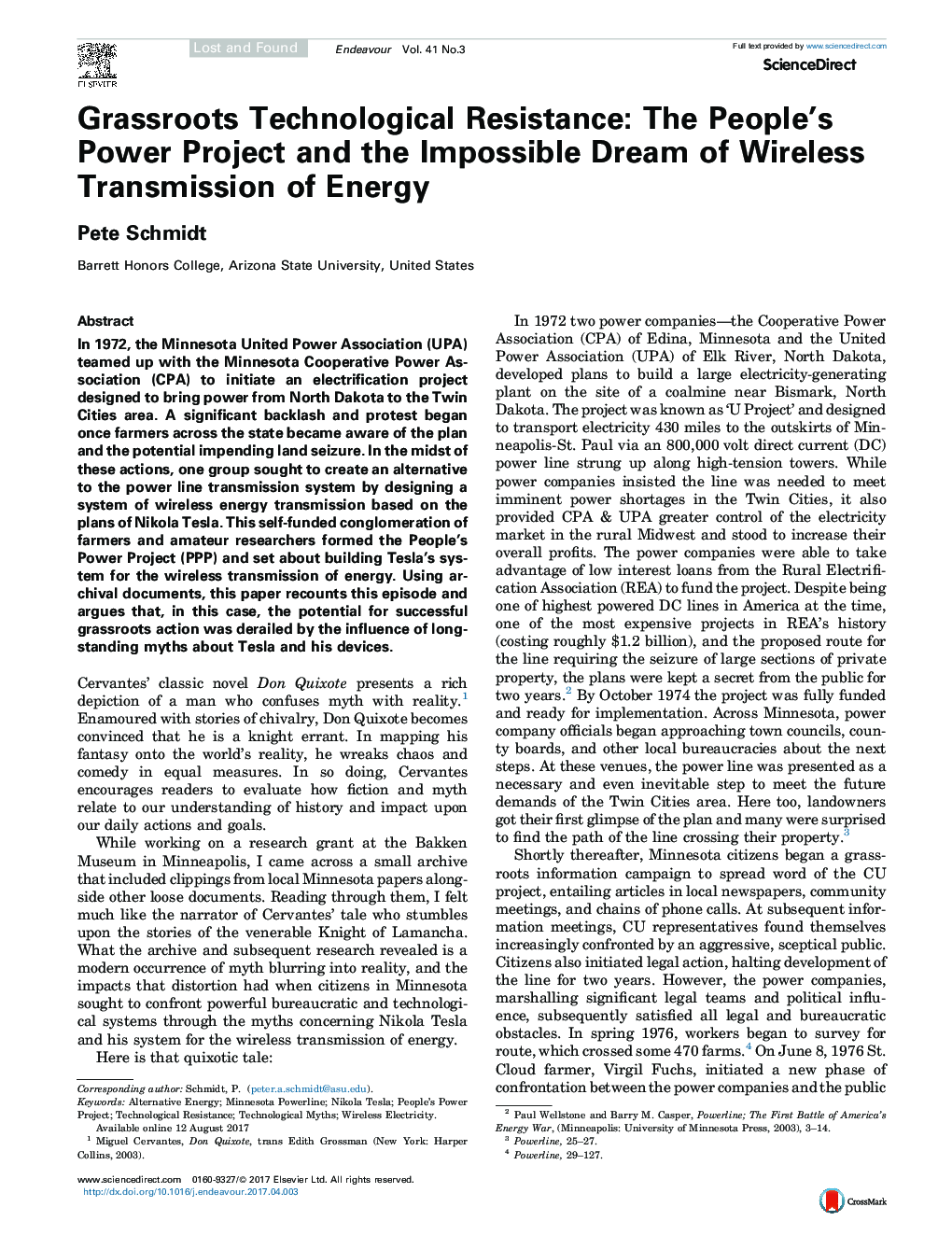| Article ID | Journal | Published Year | Pages | File Type |
|---|---|---|---|---|
| 5130226 | Endeavour | 2017 | 4 Pages |
â¢In February 1977 a grassroots group called the People's Power Project (PPP) was formed in Minnesota to oppose the development of a massive power line project.â¢Though lacking any specific scientific training, the group utilized large amounts of resources and time to develop a system of wireless transmission of energy proposed by Nikola Tesla.â¢The lack of specialized training as well as the influence of the mythic elements of Tesla's biography seems to have contributed to the groups' devotion to the idea.â¢Despite their ultimate failure, their actions garnered considerable attention of the media and drew volunteers from across the country and around the globe, illustrating the potential of myth as a catalyst to grassroots action.
In 1972, the Minnesota United Power Association (UPA) teamed up with the Minnesota Cooperative Power Association (CPA) to initiate an electrification project designed to bring power from North Dakota to the Twin Cities area. A significant backlash and protest began once farmers across the state became aware of the plan and the potential impending land seizure. In the midst of these actions, one group sought to create an alternative to the power line transmission system by designing a system of wireless energy transmission based on the plans of Nikola Tesla. This self-funded conglomeration of farmers and amateur researchers formed the People's Power Project (PPP) and set about building Tesla's system for the wireless transmission of energy. Using archival documents, this paper recounts this episode and argues that, in this case, the potential for successful grassroots action was derailed by the influence of longstanding myths about Tesla and his devices.
